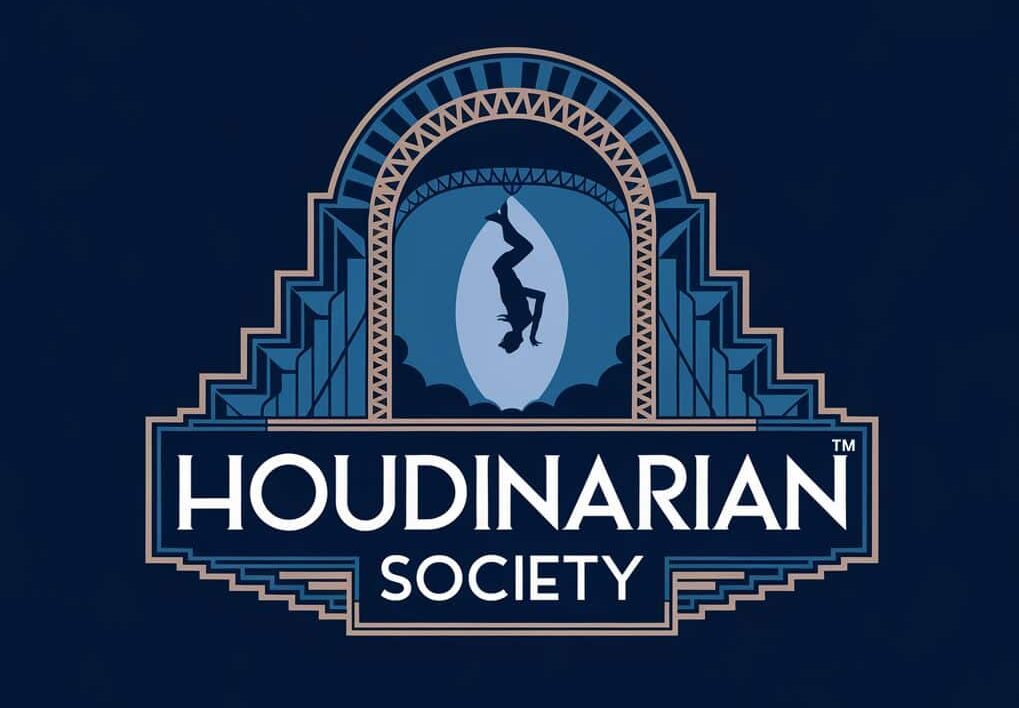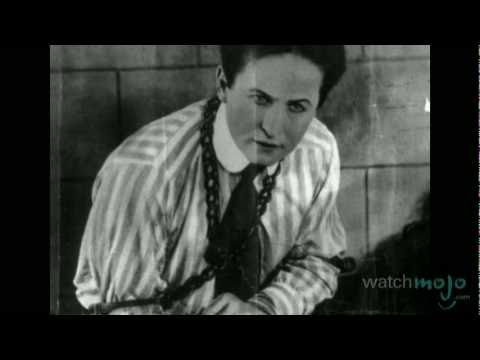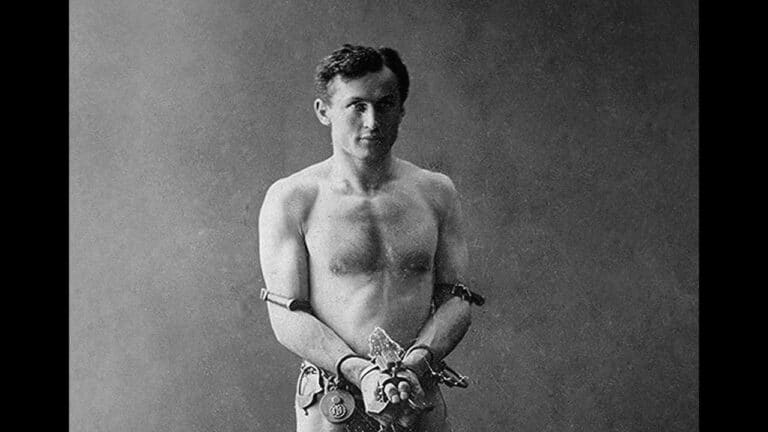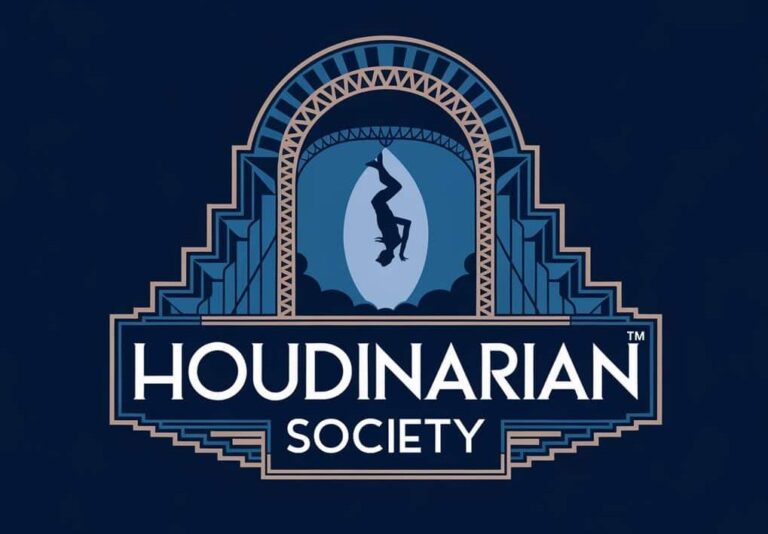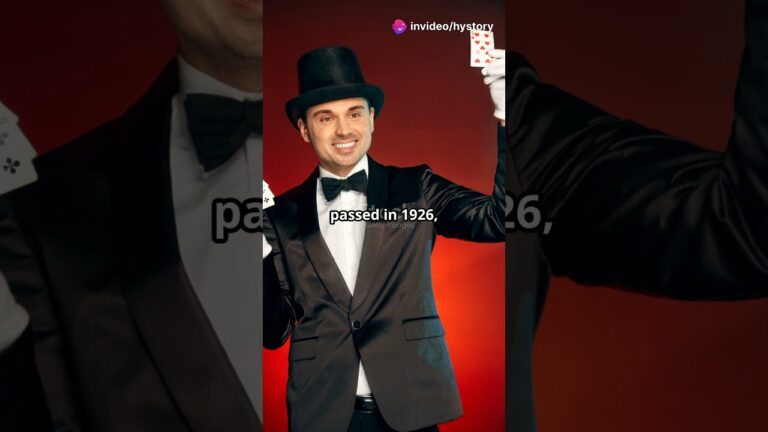The Ethics of Deception in Magic: A Deep Dive into Houdini’s Legacy
Magic’s relationship with deception creates unique ethical questions. As a performer, you must balance entertaining audiences while maintaining their trust.
The key difference between ethical and unethical deception in magic lies in the unspoken agreement between performer and audience. They willingly participate in the illusion while knowing it’s not real.
Harry Houdini understood this balance perfectly. His innovative techniques and dramatic flair revolutionized magic performance, yet he spent significant effort exposing fraudulent mediums and charlatans who deceived vulnerable people.
This dual role as both magician and truth-seeker shaped modern magic’s ethical framework.
You’ll find that Houdini’s approach to magic ethics remains relevant today. His commitment to honest deception – where the audience knows they’re watching skillful illusions rather than supernatural powers – continues to guide professional magicians in maintaining the delicate balance between mystery and integrity.
Houdini’s Philosophical Approach to Illusions

Harry Houdini viewed magic as more than mere entertainment – it was an art form that demanded both technical mastery and ethical consideration. He believed that illusions should serve to amaze and inspire rather than deceive and exploit.
The Principles of Theatrical Deception
Houdini drew a clear line between theatrical illusion and fraudulent deception. You can see this distinction in his famous campaign against fake spiritualists.
He insisted that magicians must be honest about presenting their work as entertainment. When you watch a magic show, you enter into an unspoken agreement with the performer.
Magic should challenge your mind while respecting your intelligence. Houdini practiced what he called “honest deception” – using skill and showmanship to create wonder, not false hopes.
Balancing Entertainment with Ethical Responsibility
Houdini’s innovative techniques raised important questions about a magician’s duty to their audience. You deserve both amazement and respect as a spectator.
He believed that revealing magic secrets damaged the art form. Yet he also exposed fraudulent mediums who preyed on grieving families.
This dual approach showed his commitment to protecting both the craft of magic and the public good. You can still see his influence in modern magicians who maintain high ethical standards.
Houdini’s Views on the Performer-Audience Relationship
Trust formed the foundation of Houdini’s performance philosophy. You weren’t just watching his shows – you were participating in them.
His dramatic escapes created a powerful bond with audiences. Each performance invited you to witness something extraordinary while knowing it was skillful artifice.
He believed magicians should earn their audience’s trust through genuine skill. Your willingness to suspend disbelief deserved to be met with real expertise and honest showmanship.
The Crusade Against Fraudulent Mediums

In the 1920s, Harry Houdini launched a fierce campaign against fake spiritualists who preyed on grieving families. His dedication to exposing fraudulent mediums combined his mastery of illusion with his strong moral compass.
Exposing Deceptive Practices
Houdini used his expertise in magic to reveal the tricks used by fake mediums. He would attend séances in disguise, carefully observing the methods used to fool believers.
Common tricks he exposed included:
- Hidden wires to move objects
- Secret assistants creating “spirit voices”
- False compartments in tables
- Staged readings using pre-gathered information
His investigations were thorough and methodical. You can see his attention to detail in the 40-page pamphlets he published documenting specific fraudulent practices.
The Impact of Houdini’s Campaigns on Public Perception
Houdini’s work changed how many people viewed spiritualism. His famous demonstrations and lectures showed audiences exactly how mediums fooled their clients.
His campaign created rifts with former friends, including Sir Arthur Conan Doyle, who believed strongly in spiritualism. This personal cost didn’t deter Houdini from his mission.
The publicity from his investigations made people more skeptical of supernatural claims. You could see the effects in declining attendance at séances and increased public awareness of fraudulent techniques.
Legal and Ethical Implications of His Actions
Houdini pushed for laws to protect people from fraudulent mediums. He testified before Congress about the need to regulate séances and spiritualist practices.
His work set a precedent for modern skeptics and investigators who continue to expose paranormal fraud. You can trace many current consumer protection laws against psychic fraud to his early efforts.
He maintained that entertaining through admitted illusion was ethical, while deceiving vulnerable people for profit was not. This distinction shaped magic’s professional ethics.
Houdini’s Ethical Principles in Performance

Harry Houdini pioneered strict ethical standards in magic that shaped entertainment forever. His commitment to honest deception and respect for audiences created rules that modern magicians still follow.
Transparency in Illusions
Houdini believed in being upfront with audiences about the nature of his performances. He made it clear that his escapes and illusions were based on skill and practice, not supernatural powers.
Public exposure of magic secrets was wrong, according to Houdini’s strict code. You would always see him acknowledge his work as entertainment rather than real magic.
He took pride in perfecting his craft through endless practice and preparation. This honest approach helped build trust with his audience while maintaining the mystery of his methods.
Respect for the Audience’s Intelligence
Houdini never underestimated his viewers’ capacity to think critically. He encouraged skepticism and analytical thinking during his shows.
His performances challenged you to figure out his methods, turning each show into an intellectual game between performer and audience.
This respect extended to his crusade against fraudulent mediums. He wanted to protect people from those who exploited their beliefs for profit.
The Line Between Trickery and Deception
Houdini drew a clear line between entertainment magic and harmful deception. Magic should amaze and inspire, not manipulate or exploit.
As the first president of the Society of American Magicians, he established strict guidelines about ethical performance. These rules separated legitimate performers from frauds.
You can see his influence today in how magicians present their work as skill-based entertainment rather than supernatural ability. His principles created a framework for honest showmanship that preserves both mystery and integrity.
Modern Discussions on Ethical Boundaries in Magic
The magic community grapples with complex questions about deception, disclosure, and responsibility. Magic’s role in modern entertainment creates unique challenges for performers who must balance showmanship with ethical obligations.
Influence of Houdini’s Legacy on Contemporary Magicians
Houdini’s unwavering stance on exposing fraudulent mediums shaped how modern magicians approach ethical issues. His commitment to truth continues to guide professional standards today.
When you examine current magic shows, you’ll notice clear disclaimers about the nature of the performance. Many magicians now explicitly state their acts are based on skill and illusion, not supernatural powers.
Professional magic organizations have developed strict codes of conduct. These codes emphasize honesty in marketing, respect for intellectual property, and protection of trade secrets.
Ethical Dilemmas in Modern Magic Performance
Ethical considerations in magic demand balance between entertainment and integrity. You must consider:
- Audience vulnerability: Protecting vulnerable viewers
- Truth in advertising: Making clear distinctions between illusion and reality
- Psychological impact: Avoiding manipulation that could cause distress
- Financial responsibility: Setting fair prices and managing expectations
Modern technology adds new layers of complexity. Digital effects and social media create questions about authenticity and disclosure in magic performances.
Case Studies of Ethical Controversies in Magic
Recent controversies highlight ongoing debates about revealing magic secrets. Television specials exposing classic illusions have sparked heated discussions within the magic community.
Notable cases include:
- TV magicians revealing competitors’ methods
- Social media exposure of traditional secrets
- Debates over mentalism shows and claims of psychic abilities
These incidents force performers to consider their obligations to both their art and their audience. Magic organizations now regularly address these issues through ethics committees and professional guidelines.
The Intersection of Morality and Showmanship
Magic performers walk a tightrope between entertaining deception and ethical responsibility. Their craft depends on creating wonder through carefully crafted illusions while maintaining trust with their audience.
The Role of Ethics in Theatrical Performances
You might notice that ethical magic performances rely on an unspoken contract between performer and spectator. The magician promises entertainment, not genuine supernatural abilities.
Professional magicians must balance their desire to amaze with their duty to protect vulnerable audiences. This includes children, the elderly, and those who might believe in actual supernatural powers.
Trust forms the foundation of any successful magic act. When you watch a performance, the magician isn’t trying to fool you maliciously – they’re inviting you to participate in a shared experience of wonder.
Comparisons with Other Performing Arts
Magic differs from theater and dance in one crucial aspect: deliberate misdirection. While actors portray characters openly, magicians must conceal their methods.
Like traditional storytelling, magic performances weave narratives that captivate audiences. The key difference lies in the audience’s willing participation in the deception.
Your experience at a magic show shares elements with other performing arts:
- Suspension of disbelief
- Theatrical timing
- Artistic presentation
- Technical skill mastery
Audience Expectations and Ethical Considerations
When you attend a magic show, you enter with specific expectations. You want to be amazed, but you also trust the performer to maintain professional boundaries.
Modern ethical standards in magic require clear distinctions between entertainment and claims of real supernatural abilities. Performers must respect audience boundaries and avoid exploiting beliefs.
Key ethical guidelines for magicians include:
- Never claiming supernatural powers
- Protecting method secrets
- Respecting audience privacy
- Maintaining performance safety
As an audience member, you should actively participate in the theatrical experience while maintaining healthy skepticism.
